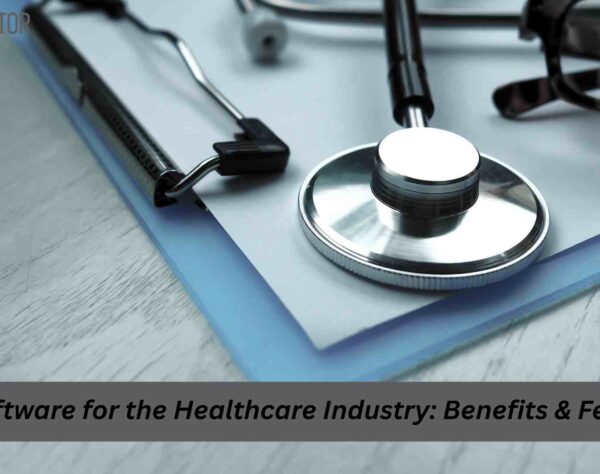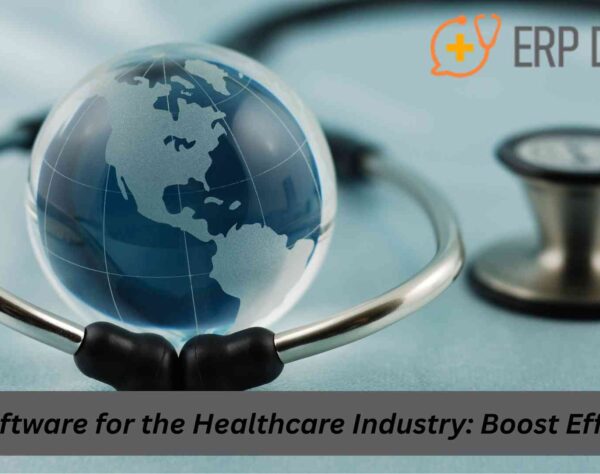
AI-Powered ERP in Healthcare: Smarter Decisions, Better Care

AI-Powered ERP in Healthcare: Smarter Decisions, Better Care
The healthcare industry is evolving rapidly, driven by rising patient demands, stricter compliance regulations, and the growing need for cost efficiency. Traditional management systems can no longer keep up with the speed and complexity of modern healthcare operations. Enter AI-powered ERP systems. By combining the power of Enterprise Resource Planning (ERP) with Artificial Intelligence (AI), hospitals, clinics, and healthcare providers can achieve smarter decision-making, streamlined operations, and better patient care. Leading solutions like SAP Business One, SAP S/4HANA, and Salesforce Health Cloud are already reshaping the future of healthcare management.
1. Smarter Patient Data Management
Healthcare generates massive volumes of patient records, lab results, and treatment histories. An AI-enabled ERP system integrates this data into a single platform, making it:
- Accessible to doctors and staff in real time.
- More accurate with reduced errors.
- Predictive, as AI can flag potential health risks or treatment gaps.
This ensures continuity of care and improved patient outcomes.
2. Compliance and Data Security
Healthcare providers must comply with regulations such as HIPAA, GDPR, and local health laws. AI-powered ERP solutions strengthen compliance by:
- Automating audit trails and reporting.
- Identifying anomalies that may signal data breaches.
- Encrypting sensitive patient and financial data.
With SAP ERP solutions or cloud-based ERP systems, providers can stay secure and audit-ready.
3. Streamlined Financial and Billing Operations
Errors in billing and claims can cause revenue losses and delays. ERP software with AI integration automates:
- Insurance claim processing.
- Billing cycle management.
- Fraud detection in financial transactions.
This not only reduces costs but also improves patient trust by ensuring transparent billing.
4. Optimized Healthcare Supply Chain
From medicines to medical equipment, supply chain efficiency is critical in healthcare. AI-powered ERP provides:
- Real-time visibility into inventory and stock levels.
- Predictive insights for demand forecasting.
- Alerts for shortages or compliance issues in the supply chain.
With SAP Business One ERP or Odoo ERP solutions, hospitals can prevent shortages while avoiding overstocking.
5. Predictive Analytics for Better Decision-Making
The most powerful benefit of AI-driven ERP in healthcare is predictive analytics. By analyzing patient and operational data, ERP systems help leaders:
- Forecast patient admission rates.
- Optimize staffing levels.
- Make faster, evidence-based decisions.
This ensures healthcare organizations remain agile, efficient, and patient-focused.
To Sum It Up
The future of healthcare lies in digital transformation powered by AI and ERP solutions. From improving compliance and supply chain management to enabling predictive healthcare insights, AI-enabled ERP systems ensure smarter decisions and better patient care.
By adopting platforms like SAP Business One ERP, SAP S/4HANA, or Salesforce Health Cloud, healthcare providers can enhance efficiency, lower costs, and deliver quality healthcare services in a secure, compliant environment.
FAQs
1. What is an AI-powered ERP system in healthcare?
It combines enterprise resource planning with artificial intelligence to manage patient data, compliance, finances, and supply chains more efficiently.
2. How does AI-powered ERP improve patient care?
It centralizes records, lab results, and treatment histories, giving doctors real-time access and using AI to predict risks or treatment gaps.
3. Why is compliance important in healthcare ERP?
Healthcare laws like HIPAA and GDPR require strict compliance. AI-powered ERP automates audits, encrypts data, and flags anomalies to keep providers secure.
4. Can AI-powered ERP reduce billing errors in hospitals?
Yes. It automates claims, billing cycles, and fraud detection, reducing errors, avoiding revenue losses, and ensuring transparent patient billing.
5. How does ERP help manage healthcare supply chains?
It provides real-time stock visibility, predicts demand, and alerts shortages, helping hospitals balance supply needs without overstocking.
6. What role does predictive analytics play in healthcare ERP?
It analyzes patient and operational data to forecast admissions, optimize staffing, and support faster, evidence-based decision-making.
7. Which ERP solutions are best for healthcare providers?
Popular options include SAP Business One, SAP S/4HANA, Odoo, and Salesforce Health Cloud, all designed to streamline healthcare operations.
8. Is AI-powered ERP secure for sensitive patient data?
Yes. With encryption, monitoring, and anomaly detection, these systems safeguard sensitive data and meet strict healthcare regulations.
9. How does ERP lower costs for healthcare organizations?
By automating billing, supply chains, and processes, ERP cuts waste, reduces errors, and improves resource utilization to save costs.
10. What is the future of AI-powered ERP in healthcare?
It will drive predictive healthcare, personalized treatments, and more efficient operations, helping providers stay agile and patient focused.
Unlock smarter telecom compliance with SAP—connect with our experts at the ERP Doctor today!







